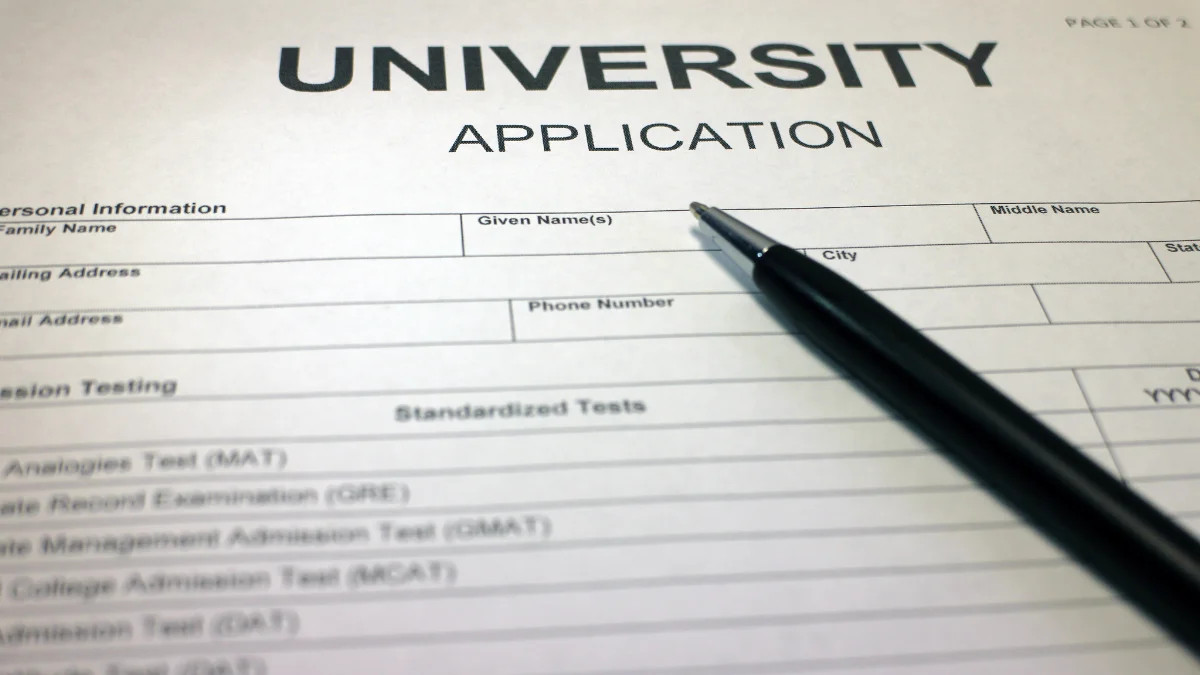So you’re thinking about applying to college soon. The whole idea of putting together university applications is kind of freaking you out, right? There are so many details and forms, it’s hard to keep track of everything. But don’t worry, the process isn’t as scary as you think! This article is going to break it all down for you step-by-step to help demystify everything. We’ll cover timelines, essays, sending test scores, letters of recommendation, and more. You’ll walk away feeling way more confident about tackling those applications. By the end, you’ll be ready to submit super strong applications to your top choice schools!
Understanding the University Application Timeline
The university application process can feel overwhelming, but breaking it down into a timeline can help make it more manageable. Here are the major steps and deadlines to be aware of:
1-2 Years Before Applying
This is when you should start researching schools and programs of interest. Make a list of your top choices and visit the schools’ websites to learn about admissions criteria and deadlines. Talk to your teachers and counselors to get their input on good matches for your interests and abilities.
Spring of Junior Year
Register for required admissions tests like the SAT, ACT, or entrance exams for specific majors. Study hard and take practice tests to prepare. Ask teachers to write letters of recommendation on your behalf.
Summer Before Senior Year
Finalize your list of schools and map out a schedule for completing your applications. Start drafting your personal essays, statements of purpose, or other written submissions. Gather transcripts, test scores, awards, and other materials to include with your applications.
September – December of Senior Year
Submit your applications, ideally at least 2-4 weeks before the published deadlines. Double check that you have included all required components for each school. Follow up to confirm your applications were received and are complete.
January – April of Senior Year
Schools review applications and make admission decisions. Check online portals, emails, and mail regularly for status updates and notifications. Respond promptly to any requests for additional information or interviews. Make your final choice and notify all schools of your intent to enroll by the May 1st deadline.
The key is not to procrastinate and to meet all deadlines. While it can seem complicated, taking it step-by-step will make applying to university achievable. Stay organized, ask questions, and don’t hesitate to ask your counselors, teachers, and parents for help. With time and patience, you’ll get through the process successfully!
What Colleges Look for in Applicants
Colleges want to find students who will contribute to the campus community. They look at more than just your grades and test scores. Admissions officers also consider your:
- Extracurricular activities: Clubs, sports teams, volunteering, internships, jobs, hobbies, interests, etc. Colleges like to see students who are actively involved in their school or local community.
- Personal qualities: Admissions officers look for applicants who demonstrate positive personal qualities like leadership, motivation, creativity, maturity, and persistence. Your personal essay, letters of recommendation, and interview (if offered) provide insight into your character.
- Life experiences: The challenges and obstacles you’ve faced in life and how you’ve overcome them. Colleges give additional consideration to first-generation college students or those from disadvantaged backgrounds.
- Match: How well you match with the college’s mission and priorities. Schools want students who are a good fit and will contribute to campus life.
- Special talents: Outstanding achievements or skills in areas like arts, music, sports, entrepreneurship, languages, tech skills, etc. These talents show your passion, dedication, and ability to excel.
At the end of the day, colleges want students who will make the most of the opportunities on campus, so show your enthusiasm for learning and interest in the school. While grades matter, soft skills and life experiences are also important. Present your authentic self throughout the application process, and the college that is the best fit for you will likely accept you into their incoming class. Focus on demonstrating your character, passion for learning, and potential for growth. The rest will fall into place!
Crafting a Strong University Application
Applying to university can seem overwhelming, but breaking down the process into manageable steps will help demystify it. The key to a strong application is demonstrating your passion for learning and potential for success.
Choose the right programs
First, research programs that excite you and match your goals. Look for schools that offer majors or specializations in fields you want to study. Visit university websites to learn admission requirements, program details, and application deadlines. Make a list of your top choices.
Ace your entrance exams
Many schools require standardized test scores like the SAT or ACT. Start preparing at least 6 months in advance. Take practice tests to familiarize yourself with the format. Focus your studying on challenging areas to maximize your score.
Build your resume
Your resume highlights your accomplishments, activities, skills, and work experience. Include things like volunteer work, clubs, sports teams, internships, and jobs you’ve held. Emphasize leadership roles and quantify your impacts when possible. Ask teachers, coaches, and employers for recommendations to strengthen your resume.
Craft a compelling essay
The application essay is your chance to show your personality and passion for learning. Choose a topic that is meaningful to you and aligned with your selected programs. Draft an outline to organize your thoughts before writing the first draft. Have teachers and parents review and provide feedback. Revise and edit to ensure a clear, concise, and persuasive essay.
Submit on time
Meet all application deadlines to avoid missing out on consideration for admission or scholarships. Double check that you’ve included all necessary components like test scores, transcripts, essays, and recommendations. Proofread carefully to catch any errors before submitting your application.
With thorough preparation and a thoughtful approach, you can craft a university application that gets you one step closer to pursuing your dreams. Stay determined and patient through what can be a long process. Your hard work will pay off!
Submitting a Stellar Application Package
To stand out, submit a complete application package and aim for excellence in all components.
The Application Form
Fill out the application thoroughly and honestly. Double check that all fields are accurate and submit it on time. Some schools offer fee waivers if needed, so don’t hesitate to apply even if you can’t afford application fees.
Essays
Your essays allow the admissions committee to get to know you. Share a meaningful story that gives insight into your character and personality. Discuss an experience that shaped you, your future goals, or a challenging situation you overcame. ###Letters of Recommendation
Ask teachers, counselors, coaches, or employers who know you well to write a recommendation letter. Meet with them to discuss your goals and strengths. Provide them with details about your accomplishments so they can compose a compelling letter. Follow up to ensure the letters are submitted before the deadline.
Transcripts
Your transcript provides an overview of your academic performance over the years. While grades are important, don’t be deterred from applying if you had a rough year or two. An upward trend in grades and strong scores in your areas of interest can still make you a strong candidate.
Test Scores (Optional)
Many schools are test-optional, so check if scores are required for your program. If submitting scores, aim for the school’s average or higher on standardized tests like the SAT or ACT. Take practice tests to become familiar with the format before the actual exam date.
Resume (Optional)
A resume summarizing your activities, awards, volunteer work, and employment history provides another way for the admissions team to evaluate your potential for success at their school. Emphasize relevant experiences that demonstrate your skills and passion for learning.
Following these tips will ensure you submit an application that conveys your strengths, talents, and potential for success. With the right preparation and persistence, you’ll be on your way to getting into the college of your dreams!
University Application FAQs
The university application process can seem complicated and confusing. Here are answers to some of the most frequently asked questions to help demystify the experience.
When should I apply?
Apply as early as possible, even up to a year before your intended start date. Most schools operate on a rolling admission basis, meaning they evaluate applications as they are submitted. Applying early, especially by any priority deadlines, increases your chances of acceptance and may make you eligible for more scholarship opportunities.
How do I choose which schools to apply to?
Select a mix of “reach” schools where acceptance is less certain, target schools where your odds are good, and “safety” schools where admission is very likely. Consider things like:
- Location
- Available majors and programs of study
- School ranking and prestige
- Tuition and scholarship opportunities
- Campus community and environment
Visit schools when possible to get a feel for them in person. Meet with admissions counselors to ask any questions you may have.
What information do I need to provide?
You will need to submit:
- An application form which may be online, on paper, or both. It will ask for basic info like your name, address, and intended major.
- An official high school transcript from all schools you have attended. Ask your guidance counselor how to request transcripts.
- Standardized test scores such as SAT and/or ACT. Scores are sent directly from the testing agency to your chosen schools.
- Letters of recommendation from teachers who know you well. Ask them at least a month before your first application deadline.
- An essay or personal statement describing your goals, experiences, and character. Follow the specific prompts and instructions for each school.
- Additional materials like a resume, portfolio of your work, or supplemental essays may also be requested depending on the school and program.
The university application process can feel stressful and complicated, but breaking it into manageable steps makes it easier to navigate. With time and organization, you’ll be submitting stellar applications in no time! Let me know if you have any other questions.
Conclusion
So take a deep breath – you’ve got this! Applying to college can feel overwhelming but breaking it down step-by-step makes it manageable. Stay organized, make deadlines, and don’t be afraid to ask for help. Trust in yourself and remember your worth is not defined by acceptance letters. Wherever you land, there will be adventures, challenges and amazing people ahead. You will grow into the person you want to become. The next chapter awaits, and you get to write it yourself.



